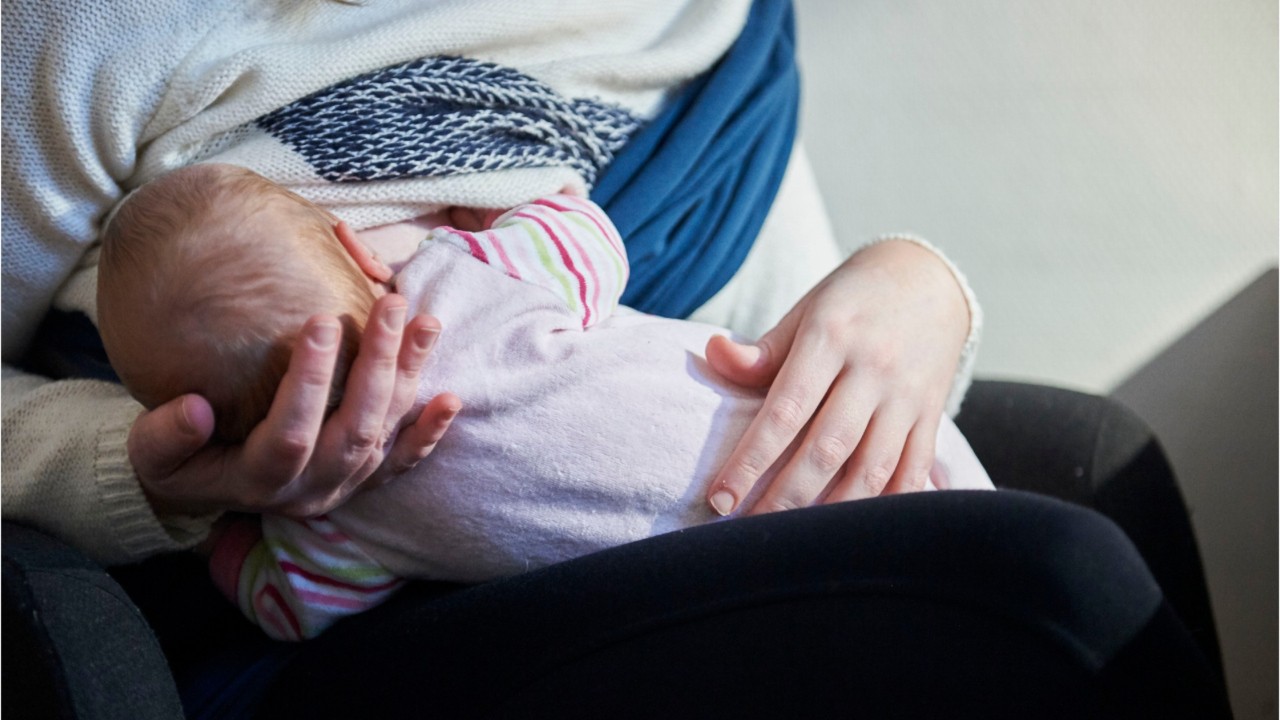Breastfeeding may later improve child’s exam scores, study suggests

Japanese company designs wearable breastfeeding device for fathers to nurse babies
A Japanese company has come up with a novel concept aimed at helping new parents more equitably divide responsibilities when it comes to feeding their baby and coaxing them to sleep.
UNITED KINGDOM - A new study has shown a link between breastfeeding and educational outcomes in children.
In the study, published in the journal Archives of Disease in Childhood, researchers at the University of Oxford enrolled approximately 5,000 babies born between 2000 and 2002 living in the United Kingdom. The children were followed up with several times until the age of 22.
Their mothers were asked for how long they breastfed their babies. The children were then divided into groups based on how long they were breastfed: not at all, a few months, or for a year or more, according to the study. The researchers also compared the exam grades of these children at age 16.
The scientists, who sought to learn the overall effect of breastfeeding on schooling outcomes, found that longer breastfeeding was associated with "better educational outcomes." Compared with children who were never breastfed, those who were breastfed for longer were likely to have a higher score in their English and mathematics scores.

A nurse embraces and teaches the foot of a newborn baby at University Hospital region of A Coruna, Galicia, 26th October 2010. (Photo by Xurxo Lobato/Cover/Getty Images)
Essentially, longer breastfeeding was associated with modest gains in academic outcomes, a result that was not surprising to lead researcher Reneé Pereyra-Elía, as the team was expecting to see a relatively small difference in the findings.
"We saw that, compared to children never breastfed, children breastfed for longer durations did slightly better in their exams, even after accounting for the differences in parental education and occupation, as well as maternal cognitive ability," lead researcher Pereyra-Elía told FOX Television Stations.
The children who were breastfed for at least 12 months were 39% more likely to have a high pass for both math and English GCSE exams and were 25% less likely to fail the English exam.
RELATED: Japanese company designs wearable breastfeeding device for fathers to nurse babies
"When possible, breastfeeding should be encouraged, because improvements in exam results are only one of the many potential benefits breastfeeding provides," Pereyra-Elía continued, but noted, "If mothers are not able to breastfeed their children, they should not worry or feel guilty, as the differences in exam results are not large: Their children will not be disadvantaged."
The team noted that the findings only show a correlation between breastfeeding and test scores — not causation.
While the researchers tried to control many factors that might influence their results, like the mother’s cognitive ability, they couldn’t account for everything in the study. In addition, children breastfed for longer were more likely to have older and more educated mothers of higher social class.
"We recommend other researchers to conduct studies that control for the differences in several dimensions of socioeconomic circumstances, as well as general measures of intelligence for both parents. It is important to evaluate if breastfeeding is still associated with slightly better grades even after accounting for the effect of all these characteristics," Pereyra-Elía added.
The American Academy of Pediatrics (AAP) currently recommends exclusive breastfeeding for about the first six months after birth, as breastfeeding has been proven to protect a baby against illnesses. Other studies have also linked breastfeeding with higher IQ scores.
This story was reported from Los Angeles.

